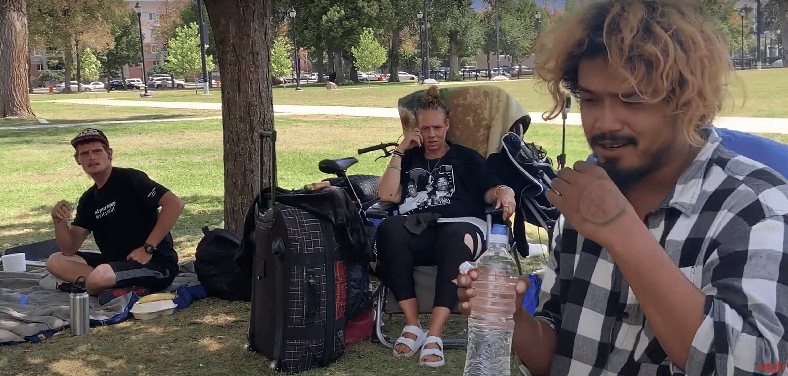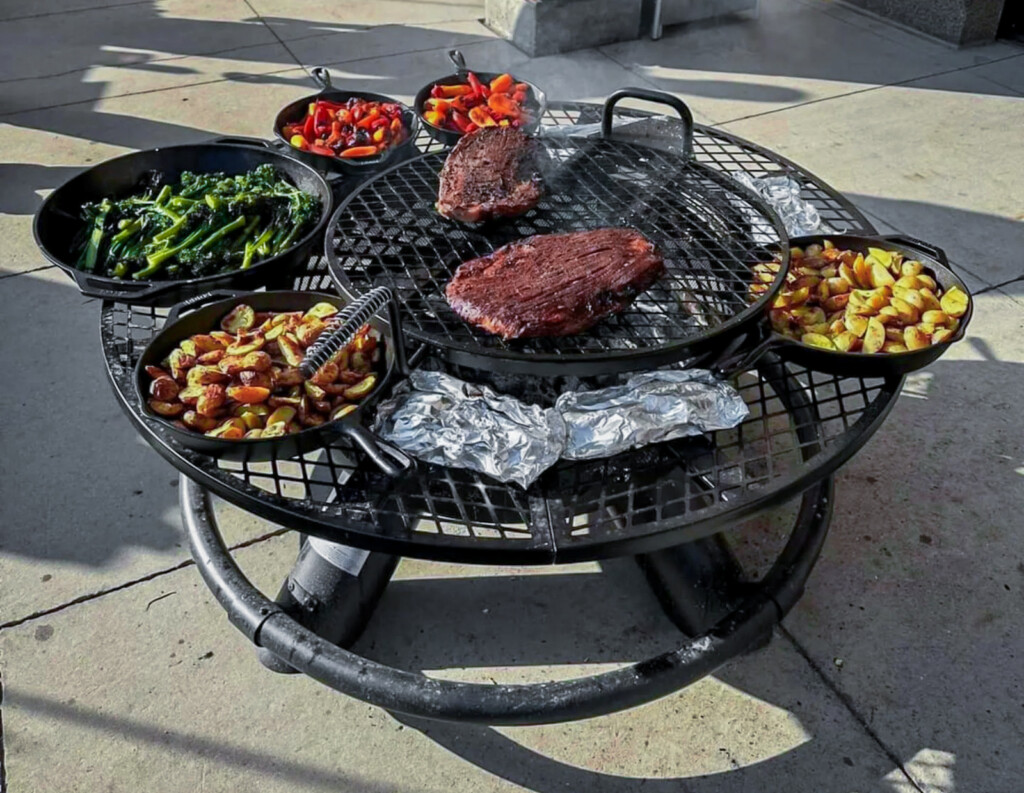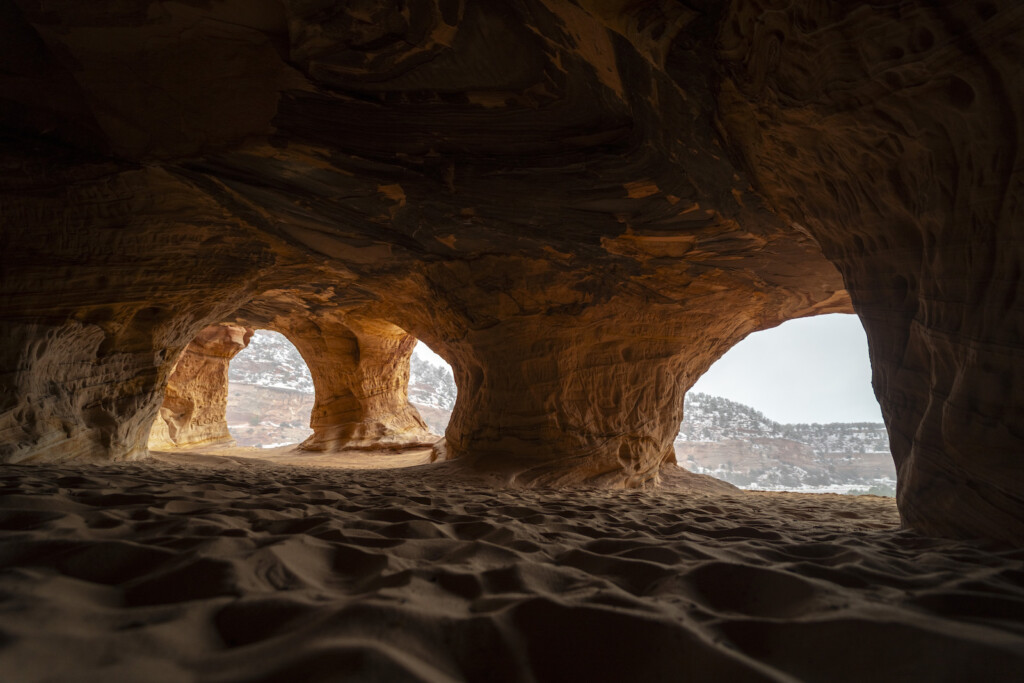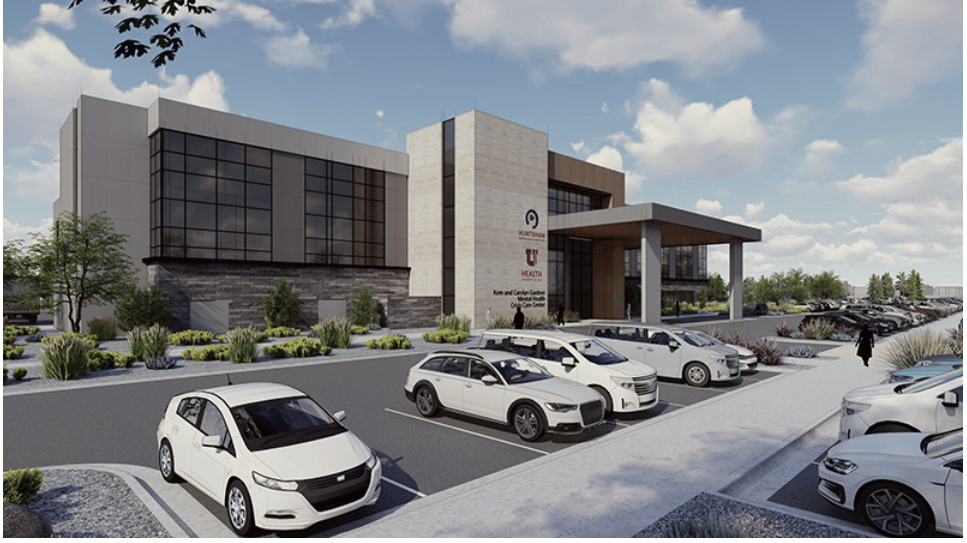
The demand for mental health care far exceeds the supply. The Otherside Village and the Huntsman Mental Health Institute will attempt to alleviate shortages.
Currently, our cities and state are woefully inadequate when it comes to treating the growing number of unsheltered individuals who are suffering from mental disorders. This is apparent from a recent observation outside of The Geraldine E. King Woman’s Resource Center. Women with severe mental disorders were evicted from the facility because the safety of the other residents could not be ensured. We observed three women outside suffering from their disorders yelling profanities, with nowhere to go but to camp outside the 600 South facility.
We also previously wrote about Michael Sussman, a man who is suffering from symptoms like paranoid schizophrenia. Sussman was recently evicted from Grace Mary Manor for reasons they have not disclosed to Utah Stories, he is living on the streets with his afflictions currently not receiving treatment for his mental disorder.
Utah has one of the highest per capita rates of mental illness. Currently, the demand for mental health far exceeds the supply. Those who have stepped up to address this problem are The Huntsman family who has donated $150 million to The Huntsman Mental Health Institute (formerly UNI). They have committed to expanding both at research part as well as offering additional services at the Kem and Carolyn Gardner Mental Health Crisis Care Center in South Salt Lake. This facility will open in 2024. Its purpose is to provide more treatment and beds for those suffering from severe afflictions. But the urgent need is to get those suffering from mental illness into housing.
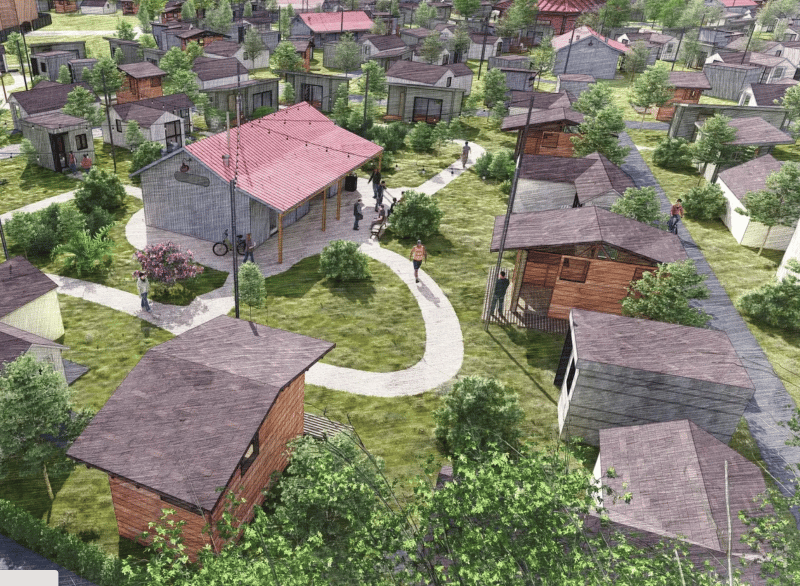
The Otherside Village plans to address and help people suffering from mental afflictions. They hope to break ground by the end of this year but it’s taking them a very long time due to regulations and zoning requirements to break ground on their plan.
Salt Lake City Mayor Mendenhall is behind the Otherside Village, and the plans are now complete for the Salt Lake City Council to consider. The only problem is that the Otherside Village will end up accommodating 500 individuals.
Seniors are now the most recent victims of the housing shortage, it seems clear that this number of “deeply affordable” housing units will be a drop in the bucket, compared to the overall demand, which could exceed 9,000 needed units by next year. It’s clear that this shouldn’t be considered just Salt Lake City’s problem, it should be considered a state-wide problem.
The Demand for Deeply-Affordable Housing in Utah Far Exceeds Supply
Carol Hollowell, Executive Director at Switchpoint, which is a homeless resource permanent supportive housing provider in Salt Lake City and in Washington County says that “right now, actually yesterday we needed 6-7 thousand more ‘deeply-affordable’ housing units. (units that would rent for $300-$600 per month). She believes that the homeless problem should not be just Salt Lake County’s problem but that every county in Utah should “step up” and change zoning laws to allow for deeply-affordable housing to be constructed within the next three to five years. Samuel Grenny from Other Side Village agrees that many more tiny home communities would need to be built in order to come close to meeting demand. The problem with changing zoning is not unique to Salt Lake County, it’s the primary problem all affordable-housing advocates are fighting against in all major cities across the United States.
The Struggle For Affordable Housing is a Fight Against NIMBYISM
Grenny says that places such as Los Angeles and San Francisco have already realized current zoning regulations and planning and zoning processes are what have exacerbated the problem in these areas.
“Developers might propose a new ‘deeply-affordable’ housing project, then after two to three years of getting through regulations and consideration if planners then determine that neighbors or neighborhoods reject the plans all of that time and money gets wasted.” Grenny says this is why these cities are faced with insurmountable homeless problems and populations.
NIMBYism ends up winning and the unsheltered end up losing.
RELATED CONTENT
Hundreds of Unsheltered People are Sleeping on Salt Lake City’s Streets Tonight. Why?
Homeless Population in Utah Increases Due to Seniors Being Priced out of the Rental Market
Salt Lake City’s Homeless Abatement Policies Examined
Investigating Homelessness Death and Public Safety in Utah
SUPPORT LOCAL JOURNALISM AND SUBSCRIBE TO PRINT MAGAZINE
Subscribe to Utah Stories weekly newsletter and get our stories directly to your inbox

